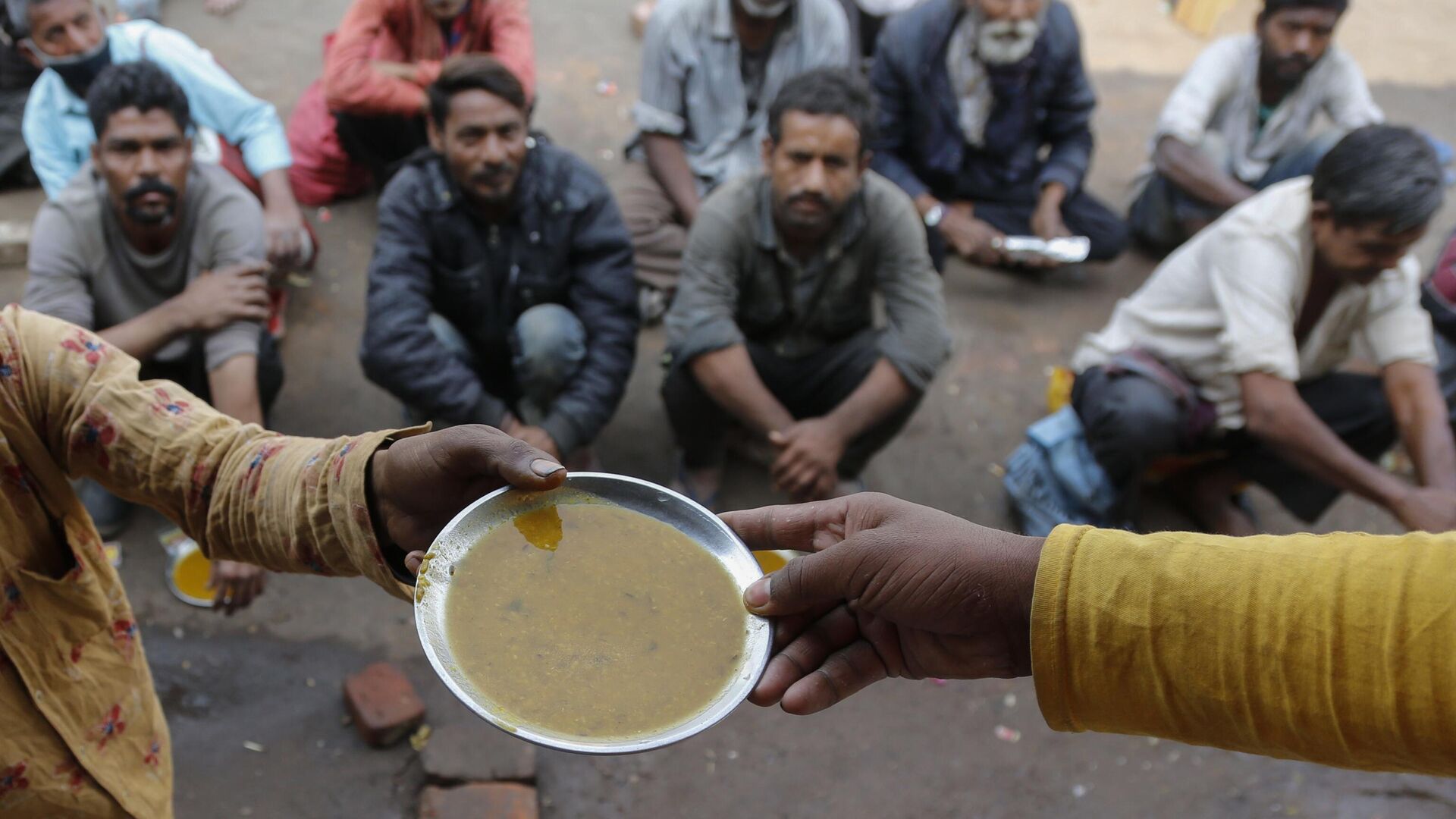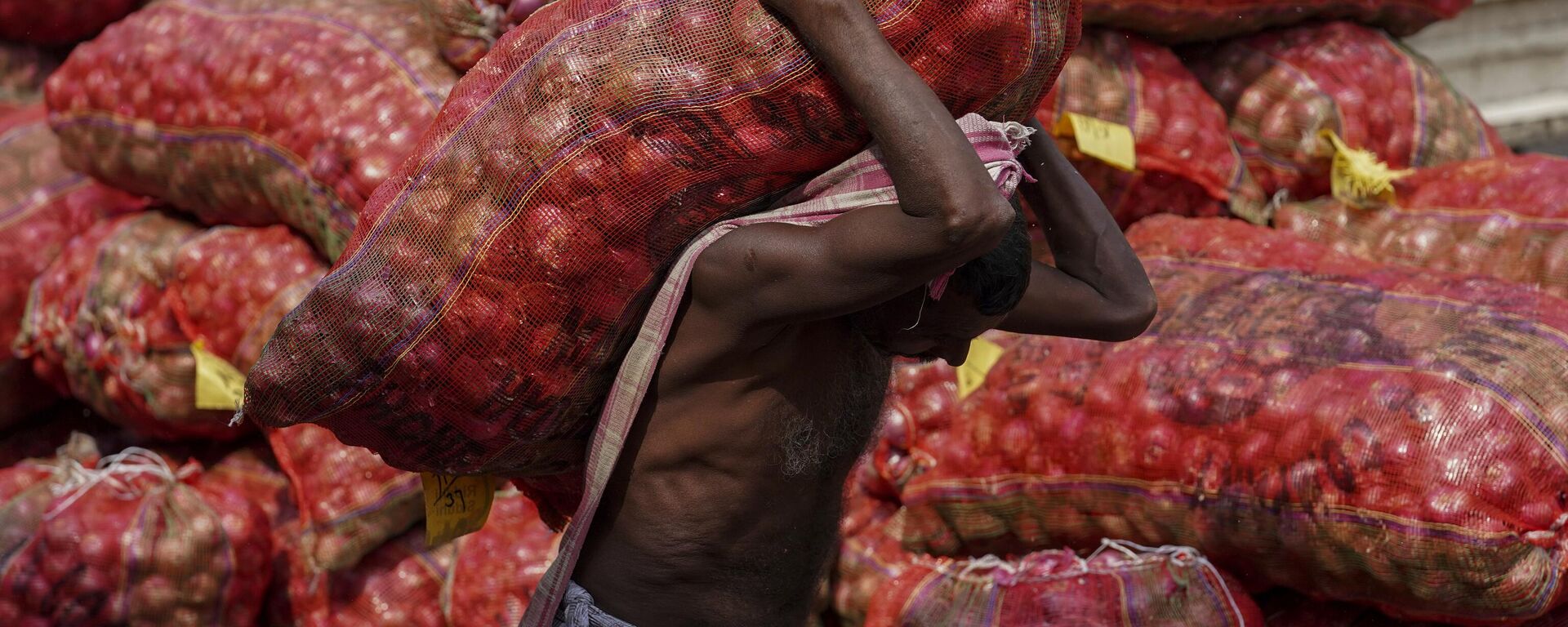https://sputniknews.in/20240226/backed-by-india--china-developing-nations-call-for-permanent-food-security-solution-6668470.html
Backed by India & China, Developing Nations Call for Permanent Food Security Solution
Backed by India & China, Developing Nations Call for Permanent Food Security Solution
Sputnik India
For India, public stockholding of grains and other crops are deemed as critical in view of the government running the biggest free-grain distribution programme in the world.
2024-02-26T12:58+0530
2024-02-26T12:58+0530
2024-02-26T12:58+0530
india
china
indonesia
food security
free foodgrains
multilateral diplomacy
multipolar world
multilateralism
free trade agreement (fta)
world trade organization (wto)
https://cdn1.img.sputniknews.in/img/07e8/02/1a/6668788_0:160:3072:1888_1920x0_80_0_0_83beecf1060e67712347b439f78ba216.jpg
The G-33 grouping of developing nations, comprising China and India, have called for a “permanent solution” to the issue of “public stockholding” at the 13th World Trade Organisation (WTO) ministerial conference (MC) which is set to take place in Abu Dhabi between 26 and 29 February.The meeting of the developing nations was chaired by Indonesia.Further, the developing nations called for a special safeguard mechanism (SSM) to shield against “major import surges or sudden price declines”.According to the WTO, public stockholding programmes are "policy tools used by governments to purchase, stockpile and distribute food when needed".The G33 members are of the view that the current WTO rules on public stockholding are “too restrictive and prevent governments from meeting the food security needs of their people”.Some of the rich nations have however objected to the stockholding programmes on the grounds that they could "distort trade" when such measures involve buying from farmers at prices fixed by the governments, or administered prices", according to the WTO.At the Bali Ministerial in 2013, the WTO members had reached an in-principle understanding that the public stockholding programmes in the developing nations won't be challenged legally.Back then, the ministers had also agreed to negotiate a permanent solution to the matter, according to the WTO statements.
https://sputniknews.in/20230827/exceptional-stress-facing-global-south-could-hit-world-economy-jaishankar-3859240.html
india
china
indonesia
new delhi
global south
Sputnik India
feedback.hindi@sputniknews.com
+74956456601
MIA „Rossiya Segodnya“
2024
Dhairya Maheshwari
https://cdn1.img.sputniknews.in/img/07e6/0c/13/138962_0:0:641:640_100x100_80_0_0_2cb44360dbcdf6d84bf4b299cd045917.jpg
Dhairya Maheshwari
https://cdn1.img.sputniknews.in/img/07e6/0c/13/138962_0:0:641:640_100x100_80_0_0_2cb44360dbcdf6d84bf4b299cd045917.jpg
News
en_IN
Sputnik India
feedback.hindi@sputniknews.com
+74956456601
MIA „Rossiya Segodnya“
Sputnik India
feedback.hindi@sputniknews.com
+74956456601
MIA „Rossiya Segodnya“
Dhairya Maheshwari
https://cdn1.img.sputniknews.in/img/07e6/0c/13/138962_0:0:641:640_100x100_80_0_0_2cb44360dbcdf6d84bf4b299cd045917.jpg
wto minesterial abu dhabi, free foodgrains india, pradhan mantri garib kalyan anna yojana, public stockholding, food security, russian grain exports, russian wheat exports, poverty in developing nations, poverty in india
wto minesterial abu dhabi, free foodgrains india, pradhan mantri garib kalyan anna yojana, public stockholding, food security, russian grain exports, russian wheat exports, poverty in developing nations, poverty in india
Backed by India & China, Developing Nations Call for Permanent Food Security Solution
For India, public stockholding of grains and other crops are deemed as critical in view of the government running the biggest free-grain distribution programme in the world.
The G-33 grouping of developing nations, comprising China and India, have called for a “permanent solution” to the issue of “public stockholding” at the 13th World Trade Organisation (WTO) ministerial conference (MC) which is set to take place in Abu Dhabi between 26 and 29 February.
“The vast majority of the G-33 Members recognise the
critical importance of public stockholding for food security purposes for developing country members, including least developed countries (LDCs) and net food importing countries (NFICs), in meeting our food and livelihood security, as well as our rural development imperative, including supporting low income or resource poor producers,” said a joint statement by G33, released by India's Commerce and Industry Ministry on Sunday evening.
The meeting of the developing nations was chaired by Indonesia.
Further, the developing nations called for a
special safeguard mechanism (SSM) to shield against “
major import surges or sudden price declines”.
According to the WTO, public stockholding programmes are "policy tools used by governments to purchase, stockpile and distribute food when needed".
"The G-33 co-sponsoring members reiterate the importance of the proposal JOB/AG/229 submitted with the African Group and the African, Caribbean, and Pacific Group, and invite other members to engage constructively with the elements contained therein, as a basis to achieve outcome on public stockholding for food security purposes in the 13th WTO Ministerial Conference," the statement demanded.
The G33 members are of the view that the current WTO rules on public stockholding are “too restrictive and prevent governments from meeting the food security needs of their people”.
Some of the
rich nations have however objected to the stockholding programmes on the grounds that they
could "distort trade" when such measures involve buying from farmers at prices fixed by the governments, or administered prices", according to the WTO.
At the Bali Ministerial in 2013, the WTO members had reached an in-principle understanding that the public stockholding programmes in the developing nations won't be challenged legally.
Back then, the ministers had also agreed to negotiate a permanent solution to the matter, according to the WTO statements.



